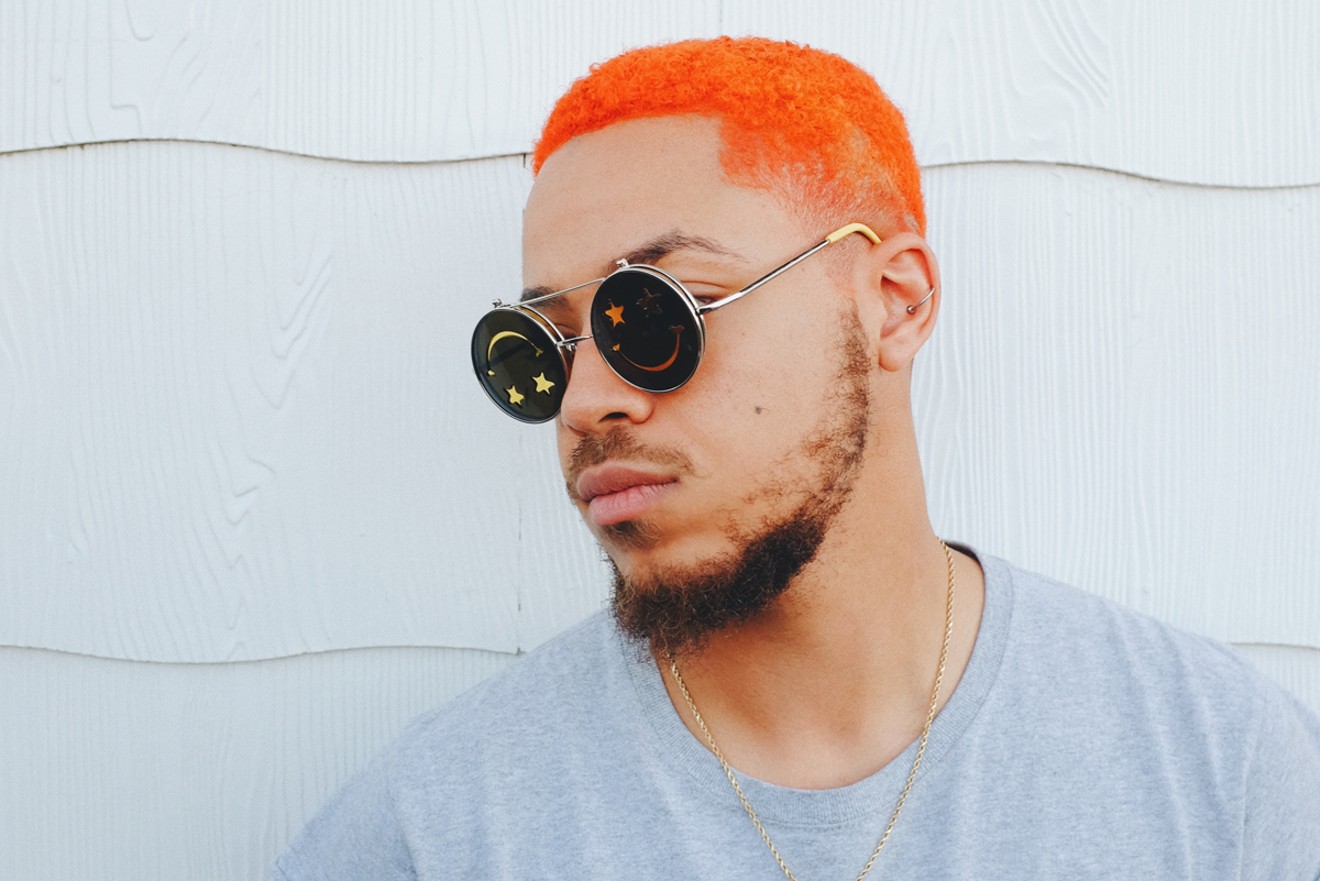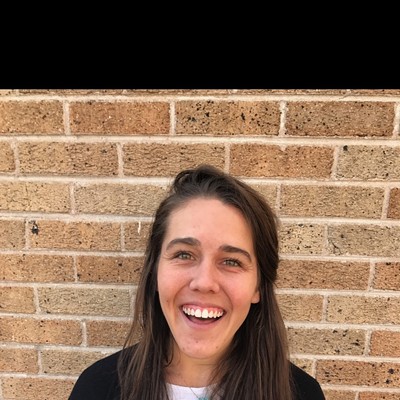It’s 2010. MTV is shooting a group of teary teenagers huddled together at Denver School of the Arts. Some hold hands; others rub each other’s backs. Everybody’s listening to their peers, nodding silently, offering support.
This real-life weep-a-thon is the set of MTV’s If You Really Knew Me, a show in which high school students come together, break down stereotypes and discover common ground through hard conversations.
One of the five students the episode focuses on is senior Khalil Arcady. The show introduces him as a “trendsetter” and uses his character to prove that even trendsetters can be emotionally broken.
“Growing up, my mom had breast cancer, and I was her primary caregiver,” Arcady says, reflecting on the story he shared on MTV. “I took care of her and my little sister. I spent a lot of time being an adult as a child. We were very much impoverished — like eating ramen noodles for breakfast and having lawn chairs as furniture.”
Looking back seven years later, he’s proud of his appearance on If You Really Knew Me and the story he shared. “We showed the world how some real-ass people live,” he says. In some ways, the show fueled his passion for music. Not that performing was a new idea for him.
Arcady, who today performs under the name Sur Ellz, grew up on East Colfax Avenue in Aurora and in Denver’s Five Points neighborhood, and never quite felt like he fit in. He has always found himself caught in the middle, whether because of his skin color, the clothes he wears or the music he listens to. Within that uncertainty, Denver School of the Arts, which Arcady started attending in sixth grade, provided him with a creative, stable environment where he felt comfortable to explore his identity.
Growing up, he danced, acted, sang, and longed to be a star. His grandmother took him to auditions for Disney Channel and Nickelodeon TV shows. But because of dealing with his mother’s illness, he and his grandmother couldn’t find a way to make his childhood dreams come true.
Arcady’s mother died when he was eleven. Afterward, he lived with his father, an amateur DJ who taught him to make his own beats. Beatmaking filled an emotional void that his other creative projects at Denver School for the Arts did not. He learned to skillfully channel his personal tragedies through his music to create something beautiful.
“I think tragedy is such a driving force for creativity because pain is beauty,” Arcady says. “It gives people a look inside the artist’s soul, into their personal struggle. It gives the listener or the observer a chance to connect with an artist on a personal level. It gives them a chance to relate and to heal.”
In eighth grade, Arcady came out as queer, confident that his peers and teachers supported and accepted him. His family moved to North Carolina the next year, but he convinced them to return to Denver for his senior year so he could finish his education at DSA. That’s when MTV looped him into If You Really Knew Me.
He found that telling the story of his life on the show gave him the courage he needed to share his music with a larger audience. While he was still developing his own style, he started writing songs for others, attempting to secure deals with R&B artists.
“From the time I was seventeen until basically now, I was experiencing rejections from labels and reps on my own solo music,” Arcady says. “Meanwhile, a ton of other artists were hitting me up to make beats or write songs for them. It was so confusing, because I felt like the industry wasn’t ready for me yet, but still there were people who believed in my sound. It helped me narrow down my sound to its own uniqueness. I learned that it’s not about what others expect from you. People will love me for being authentic.”
Arcady came into his identity as an adult, made friends and found the courage to express himself fully in Denver’s DIY scene, going to shows at Rhinoceropolis starting in 2011. In 2014, he began playing shows at the city’s underground venues, where he realized that no matter what kind of music people were listening to, whether it was punk, electronic or hip-hop, it was art.
Courageous expression, the kind cultivated in spaces like Rhinoceropolis, defines Arcady’s style on and off stage. He says he keeps his fashion edgy in order to defy cultural norms. He wears layers of vibrantly colored clothing and accessorizes his looks with hats, changing hair color and occasional face painting. Before he recently dyed his hair orange, he read online that orange is a power color and stimulates enthusiasm and creativity; he feels that this will be a signature color for Sur Ellz for a while.
“Even though I spent a lot of time growing up in Five Points, on the east side, for a lot of my life I was forced to dress more thug,” Arcady says. “It was pushed on me. ‘You ain’t cool unless you dress like us.’ Then, the time that I spent in more suburban neighborhoods, [people thought] that you were dressed trashy unless you were wearing Abercrombie or Hollister. Along the way, I found myself in the middle of that. [My style now is] a bit flamboyant, but definitely still masculine.... I like to make a statement.”
In 2011, Arcady started playing open mics solo under the name Sur Ellz and eventually started performing in that persona with the Black Actors Guild. He would bring looping equipment and run through his own songs as well as improv new ones. He likens his performances with the Black Actors Guild to those on Whose Line Is It Anyway?; he would take suggestions from the audience about things to sing about and riff off of those ideas. As Sur Ellz, he was creating a signature sound, look and feel as an actor and musician that audiences could consume.
“I think any good entertainer would agree that...acting and music [feed] on each other,” Arcady says. “As a musician, you have to get up there and bear it all, be vulnerable and show a part of yourself that people wouldn’t normally know as you. With acting, you challenge yourself to be someone other than who you are, outside of your regular self. Acting fuels my music because it helps me find different ways to create my character as Sur Ellz. Even though Sur Ellz is who I really am, it’s an exaggeration of who I am and is comprised of different elements.”
The music he performs as Sur Ellz incorporates elements of neo-soul, indie, alternative and hip-hop.
“Most of my life I grew up being too black for most white people and too white for most black people,” Arcady says. “Some days I listen to Blink 182; some days I listen to Lauryn Hill. I haven’t been able to be understood by either side. Now I just want to be understood by every side and every different type of person.”
His sound reflects the complexity of his identity and his ideal expansive audience; he says there’s a little something for everyone in his music. “Good music shouldn’t be limited to any race, gender, sexual orientation or religious denomination. People should be able to appreciate something good no matter what a person’s identity is.”
If he had to pigeonhole his genre, he would say it’s Afro-punk. He sees himself as being fearless on and off stage and in tune with both an alternative and a soulful side. He also finds inspiration in artists like Phil Collins and Fleetwood Mac, all the while staying rooted in hip-hop. He hopes by blending genres, he opens his music to more audiences, likening his work to that of the Neptunes, Pharrell Williams and Thundercat.
He says his sound is “so different that some people don’t understand until they hear the music. And then they understand: ‘Oh, that’s who this person is.’”
Arcady acknowledges that he faces many obstacles, particularly as a black, queer artist. “I know that some people won’t give me a chance because of my sexual orientation or the color of my skin or because I’m from Denver.”
But for Arcady, who is taking on as many local gigs as he can find and is planning a small tour, art is about more than success in the music industry or social acceptance. He makes music to survive life’s perils.
“From a very early age, I have been surrounded by death, poverty and loneliness,” he says. “I had friends and family, but the closest friend I have is art. Art allowed me to turn my sorrow into something beautiful. It allowed me to experience joy and happiness at times I never thought I’d ever be able to smile again. I can see sounds and paint pictures in my mind when I’m creating music. It’s the ultimate healing power.”
Sur Ellz
4 p.m. Saturday, May 27, Bluebird Theater, $15, 303-377-1666, 16+.
[
{
"name": "Air - MediumRectangle - Inline Content - Mobile Display Size",
"component": "12017618",
"insertPoint": "2",
"requiredCountToDisplay": "2"
},{
"name": "Editor Picks",
"component": "17242653",
"insertPoint": "4",
"requiredCountToDisplay": "1"
},{
"name": "Inline Links",
"component": "18838239",
"insertPoint": "8th",
"startingPoint": 8,
"requiredCountToDisplay": "7",
"maxInsertions": 25
},{
"name": "Air - MediumRectangle - Combo - Inline Content",
"component": "17261320",
"insertPoint": "8th",
"startingPoint": 8,
"requiredCountToDisplay": "7",
"maxInsertions": 25
},{
"name": "Inline Links",
"component": "18838239",
"insertPoint": "8th",
"startingPoint": 12,
"requiredCountToDisplay": "11",
"maxInsertions": 25
},{
"name": "Air - Leaderboard Tower - Combo - Inline Content",
"component": "17261321",
"insertPoint": "8th",
"startingPoint": 12,
"requiredCountToDisplay": "11",
"maxInsertions": 25
}
]












